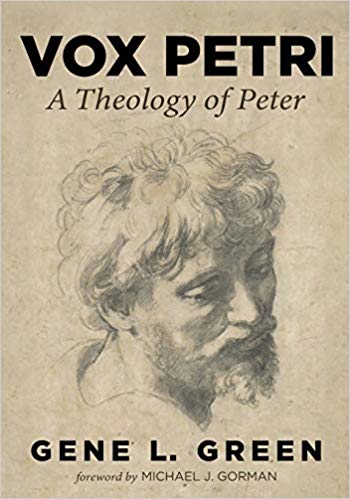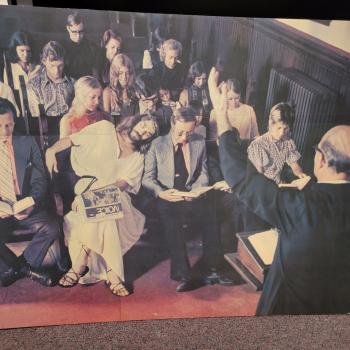Gene Green has produced perhaps the most important book on Petrine theology in almost a hundred years. It is entitled Vox Petri. A Theology of Peter (Cascade 2019, 512 pages) and it is full of good and challenging insights. We will be doing a dialogue with Gene presently on this blog, but here we begin to consider a review the book itself. One negative fact to report. This book was not properly proof-read, even though I am told two people proofread it. Well, they didn’t do a good job because I found about 100 typos, misspellings, lacunae, run together words etc. and for an editor like me, that makes me crazy. But there is nothing sloppy about the content of this book. Indeed it deserves close attention.
From the outset, Green makes a few disclaimers. He says we do not have the verbatim testimony of Peter, but we can hear the distinct voice and theologizing of the man in Mark, in his speeches in Acts, and in 1 Peter. Green spends considerable time establishing the nature of ancient testimony and its importance and how such testimonies were treated in antiquity. He clearly allows Mark and Luke to have some freedom to edit their material along the way, but his point is they are careful and conservative editors by and large. Here, he follows Richard Bauckham’s important insights from Jesus and the Eyewitnesses, one of my favorite books of the last 25 years. This whole study is carefully nuanced and it is not claiming a verbatim testimony even in 1 Peter. Nevertheless, Green rightly thinks there is some substance here, and he is right. And he is also right that Protestants have done a poor job of appreciating Peter and his contribution to early Christianity. This book should help remedy that oversight or neglect.
The book reflects a lot of detailed research on a variety of diverse subjects, and seems to have been a labor of love for a very long time indeed. Here are some of the highlights once Gene gets to the treatment of Mark. He spends a good deal of time investigating and accepting the testimony of Papias that Mark took down the Aramaic testimony of Peter and then translated it into Greek. My Mark commentary supports this thesis as well. In addition, we know now that Bethsaida was a Hellenized town, in which Peter grew up and both Greek and Aramaic were spoken there, so probably Peter did indeed know some Greek— but being able to speak it a bit or read inscriptions, is not the same as literacy capable of producing 1 Peter, or even Mark.
While there are many pluses to Green’s treatment of Mark, I do have two issues with it. Firstly, as noted in a previous post, the so-called negative portrayal of Peter and his lack of understanding for instance at the Transfiguration, needs to be understood in light of the fact that this Gospel has an apocalyptic ethos, and it has various revelatory scenes such as that one. The point of such scenes is that unless there is special revelation from God about some subject, even a good disciple will not understand it, for instance why the Messiah must die and rise again, something no early Jew expected based on the OT. Peter quite rightly in 1 Peter focuses on Christ as the Suffering Servant. This required careful explanation, particularly to Jewish Christians like those Peter is writing to in 1 Peter. But I digress. Long story short, I do not think we can draw conclusions about Peter’s ignorance or obtuseness based on his lack of understanding without further revelatory explanation. This is a regular feature of apocalyptic, not a comment on Peter’s personality or lack of knowledge. We will have much more to say about this interesting book in subsequent posts.

















